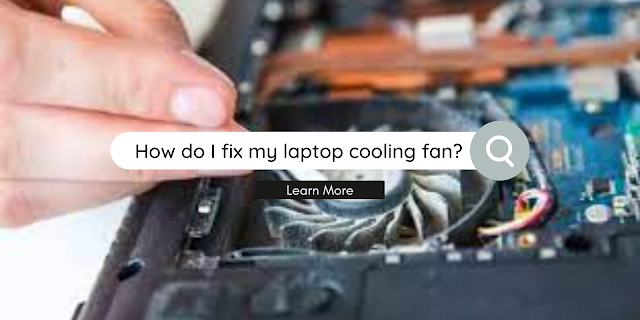HP laptop cooling problem. How to resolve it?
If your HP laptop isn't cooling properly, there are a few things you can do:
1. Clean the air vents: Over time, dust and other debris can build up in the air vents, blocking airflow and causing the laptop to overheat. You can clean the vents and get rid of any buildup with a can of compressed air or a soft brush.
2. Use a cooling pad: You can put a cooling pad under your laptop to improve airflow and get rid of heat. Most laptops have built-in fans that help keep them cool.
3. Raise the laptop up: Put your laptop on a flat, hard surface, like a desk or table. Don't use it on soft objects like a bed or pillow, as they can block the air vents and cause the laptop to overheat.
4. Check and change your power settings: Make sure that your laptop's power settings are set up so that it can cool down the best. Go to the Control Panel or Settings, then to Power Options, and choose a power plan that puts more emphasis on keeping the computer cool than on how well it works.
5. Update your BIOS and drivers: Go to the HP website and see if there are any BIOS or driver updates available for your laptop type. Some cooling problems can be fixed by installing the latest patches.
6. Stop doing too many things at once: Running too many programmes at once can put a strain on your laptop's resources and cause it to heat up more. Try to limit the number of programmes you have open at once and shut down any background processes that you don't need.
7. Don't block air vents: Make sure that nothing, like paper or cloth, is blocking the air vents on your laptop. Blocking the vents slows the flow of air and makes the car get too hot.
8. Check for malware: Malware or bugs can cause the CPU to be used too much, which makes more heat. Scan your laptop with a good security programme to see if it has any malware.
9. Copy the CPU and GPU: If you know how to do advanced hardware jobs, you might want to copy the CPU and GPU. The thermal paste between the processor and the heat sink can dry out over time, which makes it less effective. Putting on new thermal paste can help the cooling work better.
10. Talk to a specialist: If you've tried all of the above steps and the problem still won't go away, you might want to take your laptop to a professional to find out what's wrong and fix it.
Make sure to keep an eye on your laptop's temperature using software apps or the tools that come with it to make sure it is running safely.
Final words
If you've tried all of the fixing steps and your HP laptop is still giving you trouble, you should take it to a nearby laptop repair centre. They have trained techs who can figure out if the problem is with the hardware or software and fix it.
When you go to a laptop repair centre, it can be helpful to give them full information about the problem you are having, any troubleshooting steps you have already tried, and the model and specifications of your HP laptop. This information will make it easier for the experts to find the real cause of the problem.
Also, if your laptop is still under warranty, you should call HP's customer service or check their website to see if the problem is covered by the guarantee. They might be able to give you more help or point you in the direction of an authorised service centre.
Don't forget to back up your important data before taking your laptop to a repair centre. The techs may need to make repairs or reinstall the operating system, which could cause you to lose your data.

%20(1).jpg)
Comments
Post a Comment